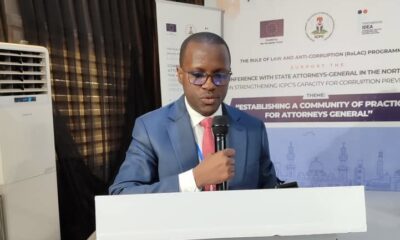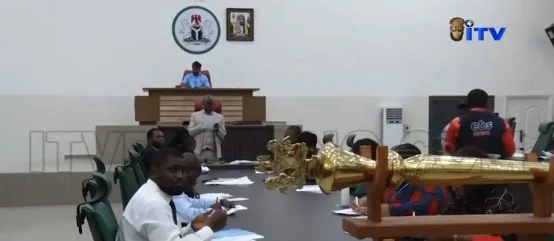The federal government is reportedly conducting a thorough investigation into the reported breaches in its national data system, according to Bosun Tijani, minister of communications, innovation, and digital economy.
Speaking on his X handle on Wednesday, Tijani stated that the investigation is being carried out by the National Data Protection Commission (NDPC) and the National Identity Management Commission (NIMC).
The minister’s statement coincides with a Paradigm Initiative research claiming that Nigerians’ bank verification numbers (BVNs), national identification numbers (NINs), and other personal information were being sold for as little as N100 on unapproved websites.
NIMC, on June 22, denied having partnerships with the websites like Idfinder.com.ng, Verify.ng, Championtech.com.ng, Trustyonline.com, and Anyverify.com; and warned Nigerians against patronising them.
However, in a separate interview, Gbenga Sesan, the executive director of Paradigm Initiative, said his organisation bought Tijani’s NIN slip for just N100.
Tijani, who neither confirmed nor denied the data breaches in the X post, said the agencies “are on top of the matter”.
“First, I have engaged my colleague, the Minister of Interior, who supervises the National Identity Management Commission (NIMC) and I am aware that his ministry and the agency are on top of the matter,” Tijani said.
“Second, the NDPC, a year-old agency under my supervision as minister, has over the last few months created data compliance mechanisms for all MDAs and has since started a thorough investigation as to the circumstances surrounding this alleged breach.”
Tijani further highlighted measures his ministry has put in place to reinforce technology application in government.
The measures, the minister said, have been part of the proactive steps he took upon appointment to help strengthen technology application in government, despite the historical siloed approach to procurement and development.
“For context, in October 2023, a few weeks after my appointment, I released a whitepaper (which you can find here – b.link/NigeriaDPI), elucidating my position on technology application within the public service and our proposed approach to leveraging existing investment in technology to accelerate economic prosperity through improved government processes,” he said.
“The very last paragraph of the whitepaper speaks clearly to how our approach will address and mitigate against issues around data breaches and make our systems secure.
“Since the release of that document, we have initiated the following: Presentation to kick off an alignment with all permanent secretaries highlighting the importance of a structured digital public infrastructure (DPI) approach and the need for data exchange across MDAs to strengthen Nigeria’s cybersecurity oversight for critical DPI
“A 2-day workshop with directors of ICT across all MDAs to enlighten and initiate a plan to strengthen DPI in Nigeria.
“Launched the #DevsInGovernment – a community of practice for all civil servants responsible for technology within the government which serves as a platform for enlightening and securing buy-in across the ICT cadre.”
Tijani also said the ministry launched the responsible data management course for civil servants (a partnership between the NDPC and Datadotorg) to improve data handling and protection across government institutions.
“Workshop with the centre for digital public infrastructure, to assess the status quo and agree on an implementation roadmap for DPI in Nigeria,” he added.
“Conducted deep dives and knowledge exchange workshops on DPI and data exchange with Finland and Estonia as part of the design process for our data exchange system.
“Finally, we have submitted a request for a presidential declaration to enable us to align all ministries, departments and agencies (MDAs) behind our goal to implement a data exchange system in Nigeria.”
Tijani also said he anticipates that by the end of the year, the initial pilot of the system should be in place and cover a minimum of five MDAs with oversight for supporting Nigerians through critical “life events”

 BIG STORY5 days ago
BIG STORY5 days ago
 BIG STORY4 days ago
BIG STORY4 days ago
 BIG STORY2 days ago
BIG STORY2 days ago
 BIG STORY2 days ago
BIG STORY2 days ago
 BIG STORY3 days ago
BIG STORY3 days ago
 BIG STORY5 days ago
BIG STORY5 days ago
 BIG STORY1 day ago
BIG STORY1 day ago
 BIG STORY5 days ago
BIG STORY5 days ago
























